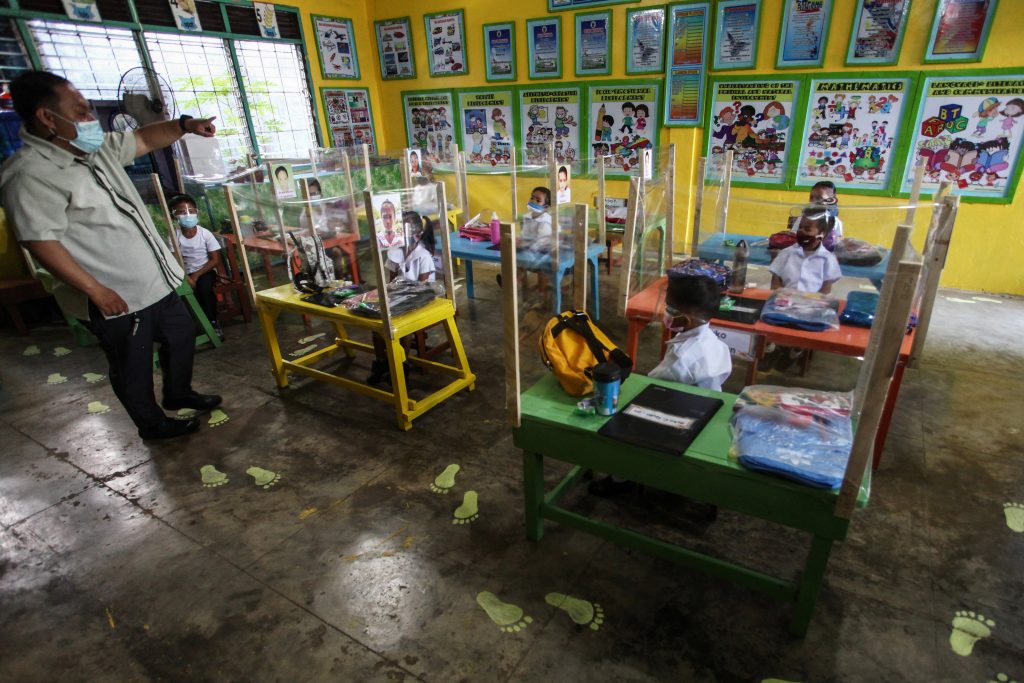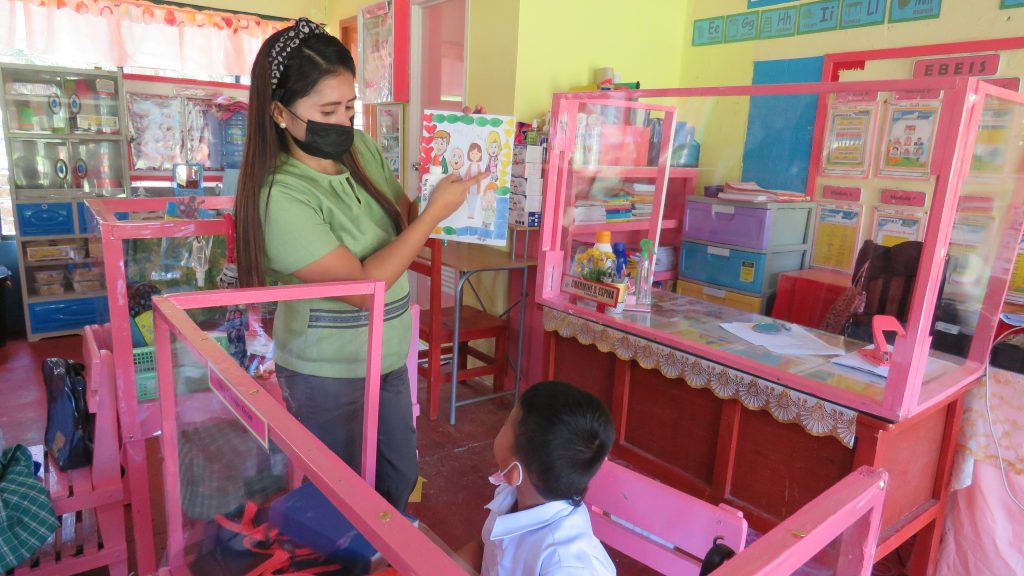
Catholic educational institutions in the Philippines have been urged to make a careful study and plan for the transition into face-to-face classes as the country started this week a two-month trial run in public schools.
“We call on the heads of Catholic schools to begin planning this transition as soon as possible,” said Father Nolan Que a regional trustee of the Catholic Educational Association of the Philippines (CEAP).
“Please begin the process of securing the consent of parents who wish to avail of this when the limited face-to-face sessions are available in your areas,” said the priest in a statement on Radio Veritas 846.
He said that to allay the fears of parents and other stakeholders, CEAP is asking the help of local government units in monitoring the implementation of health protocols around the schools with limited face-to-face sessions.
The priest made the call as about a hundred public schools out of more than 61,000 selected for the two-month trial for face-to-face classes opened on Monday, November 15.
Many of the schools are located in remote, mountainous or island communities considered to be low risk for virus transmission.
“I cannot guarantee that this will be 100 percent successful, but in our assessment, we have high hopes that this pilot will be a success,” said Education Secretary Leonor Briones last week.
Students in kindergarten, grades one to three, and senior high school are eligible to take part in the trial.
Class sizes are capped and time in the classroom limited, with strict rules on mask wearing, hand washing and social distancing.
A “blended learning” program, which involves online classes, printed materials and lessons broadcast on television and social media, will continue.
There have been growing calls from the UN’s children fund and many teachers for a return to in-person learning amid concerns the prolonged closure was exacerbating an education crisis in the country.

“Distance learning must be understood as complementary to, and not a replacement for, face-to-face learning,” said Father Que, citing a statement from the UN’s children fund.
“This is especially true for learners who have no access to the internet or technology and whose parents and caregivers are unable to provide active home-based support,” said the priest.
Father Que also called on teachers “to ensure that provisions for the blended learning approach are in place to accommodate families who prefer online distance learning.”
“We continue to pray for the guidance of the Holy Spirit and the Blessed Virgin Mary, Seat of Wisdom, that we will overcome this transition, this daunting challenge, to withstand the pandemic,” said the priest.
Schools in the national capital region have also been pushing to resume face-to-face lessons, but so far they have not received the green light.
Nearly 30 percent of the country’s 110 million people are fully vaccinated against COVID-19, although the rate is almost 70 percent in the capital Manila.
Authorities began rolling out jabs for children as young as 12 this month.
The Philippines has recorded more than 2.8 million infections since the start of the pandemic, but the daily case rate has fallen dramatically in recent weeks.
Source: Licas Philippines
0 Comments